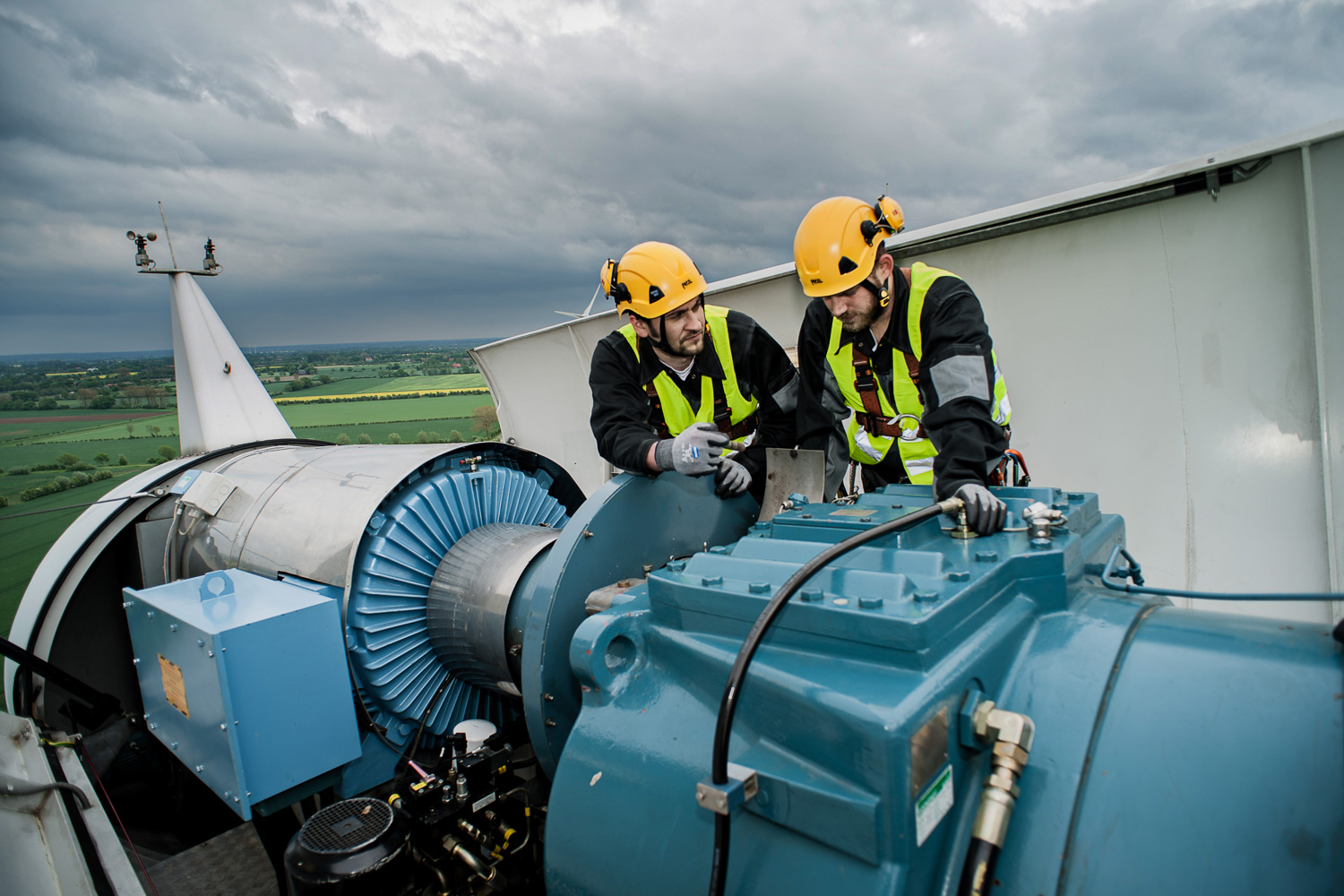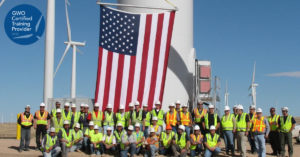In high-risk industries such as renewable energy, manufacturing, and industrial electrical work, the dangers of improperly managed hazardous energies are significant. For professionals working with electrical systems, particularly wind technicians who maintain and repair towering turbines, understanding how to control these energies is not just important—it’s essential. The Global Wind Organisation (GWO) Control of Hazardous Energies (CoHE) course provides specialized training that empowers workers to manage energy risks safely and effectively. Offered by Safety Technology USA on an on-demand basis, this course is a critical resource for wind technicians and anyone working with high-voltage equipment. Moreover, it can be paired with their Qualified Electrical Worker (QEW) to NFPA 70E training, making it a comprehensive solution for workplace safety.
What is the GWO Control of Hazardous Energies Course?
The GWO Control of Hazardous Energies (CoHE) course is designed to educate workers on the principles and practices necessary to safely control hazardous energy in the workplace. Hazardous energy refers to any form of energy—electrical, mechanical, hydraulic, thermal, or pneumatic—that, if not properly controlled, can result in serious injury or fatalities.
The course focuses on three key areas:
- Lockout/Tagout Procedures (LOTO): Workers learn how to safely de-energize equipment using locks and tags to prevent accidental reactivation during maintenance or repair.
- Risk Assessment and Energy Isolation: The training emphasizes identifying potential hazards, isolating energy sources, and verifying systems are safe to work on.
- Emergency Response: Participants are taught how to respond to incidents involving uncontrolled energy releases.
This course is particularly relevant in the wind energy sector, where technicians often work on towering turbines that contain multiple energy sources, including high-voltage electrical systems, mechanical components, and hydraulic systems. The CoHE course equips them with the skills to navigate these hazards confidently.
Why is the CoHE Course So Important?
1. Protecting Lives and Preventing Accidents
Accidents involving hazardous energy can result in severe injuries, including burns, electrocution, and amputations. According to the Occupational Safety and Health Administration (OSHA), failure to control hazardous energy accounts for nearly 10% of serious workplace injuries. For wind technicians working at heights or near live electrical systems, the risks are amplified. The CoHE course ensures workers know how to properly isolate and control energy sources, reducing the likelihood of life-threatening incidents.
2. Enhancing Operational Efficiency
While safety is the primary goal, properly managing hazardous energy also improves operational efficiency. Uncontrolled energy releases can damage expensive equipment, disrupt workflows, and cause costly downtime. Workers trained in CoHE can identify and mitigate potential risks before they escalate, saving companies time and money while maintaining productivity.
3. Complying with Industry Standards
In industries like renewable energy, adherence to safety standards is non-negotiable. The GWO Control of Hazardous Energies course aligns with international safety protocols and standards, including OSHA regulations and NFPA 70E guidelines for electrical safety. Employers who prioritize this training demonstrate their commitment to workplace safety and compliance, which can enhance their reputation and reduce liability risks.
Who Should Take This Course?
While the CoHE course is designed with wind technicians in mind, it is highly relevant to anyone working with high-risk equipment. This includes:
- Industrial Electricians: Professionals handling electrical systems in factories, data centers, and other industrial settings.
- Maintenance Workers: Individuals responsible for servicing machinery and systems that involve electrical, mechanical, or hydraulic energy.
- Renewable Energy Professionals: Solar panel installers, battery storage technicians, and others in the clean energy sector who interact with complex energy systems.
Safety Technology USA: Delivering On-Demand Training Solutions
Safety Technology USA is a leader in providing high-quality training programs for professionals in high-risk industries. Our GWO Control of Hazardous Energies course is offered on an on-demand basis, allowing organizations to schedule training sessions that fit their unique operational needs.
This flexibility is particularly beneficial for businesses that need to minimize disruptions to their daily operations while ensuring their employees receive top-tier safety training. Safety Technology USA’s instructors are certified experts who bring years of industry experience to the classroom, offering practical, real-world insights that go beyond theoretical knowledge.
Combining CoHE with QEW to NFPA 70E Training
For a more comprehensive approach to electrical safety, Safety Technology USA allows participants to combine the GWO CoHE course with their Qualified Electrical Worker (QEW) to NFPA 70E training.
The QEW to NFPA 70E course is specifically designed to help workers understand and implement the National Fire Protection Association’s 70E Standard for electrical safety in the workplace. This standard focuses on reducing electrical hazards through risk assessment, personal protective equipment (PPE), and safe work practices. When paired with the CoHE training, participants gain a holistic understanding of electrical safety, from controlling hazardous energies to managing arc flash risks.
This dual training approach ensures workers are equipped with the knowledge and skills to handle even the most complex safety challenges, making them invaluable assets to their organizations.
Conclusion
The GWO Control of Hazardous Energies course is an essential training program for wind technicians and other professionals working in high-risk environments. By teaching workers how to safely control energy sources, it helps prevent accidents, enhances operational efficiency, and ensures compliance with industry standards.
With Safety Technology USA offering this course on an on-demand basis and providing the option to combine it with their QEW to NFPA 70E training, organizations can deliver tailored, comprehensive safety education to their teams. For those committed to creating a safer workplace, these courses are invaluable tools in building a culture where safety is the foundation of every task.
Want to learn more and book?
Click the button to learn more about our GWO CoHE course




